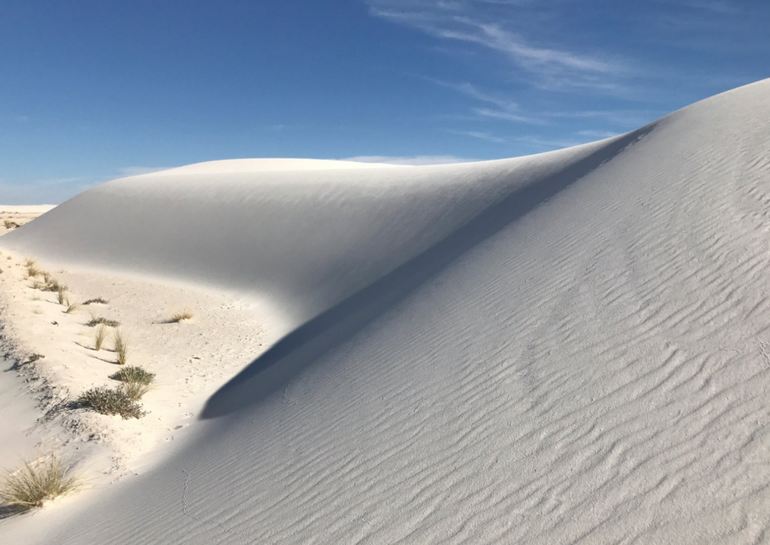
Located off Route 70 in New Mexico, the White Sands National Monument is at an elevation of 4235 feet in the Tularosa Basin. Indeed a natural wonder, the glistening white sands made of gypsum crystals are also the world’s largest gypsum dune field of its kind, covering an astonishing 275 square miles.
Along with dunes, the area is home to various plant and animal species that have adapted to living and growing in sweltering summers and cold winters, with hardly any water around. Instituted as a national monument in 1934 to preserve the white sand formations, the park provides a one-of-a-kind outdoor experience.
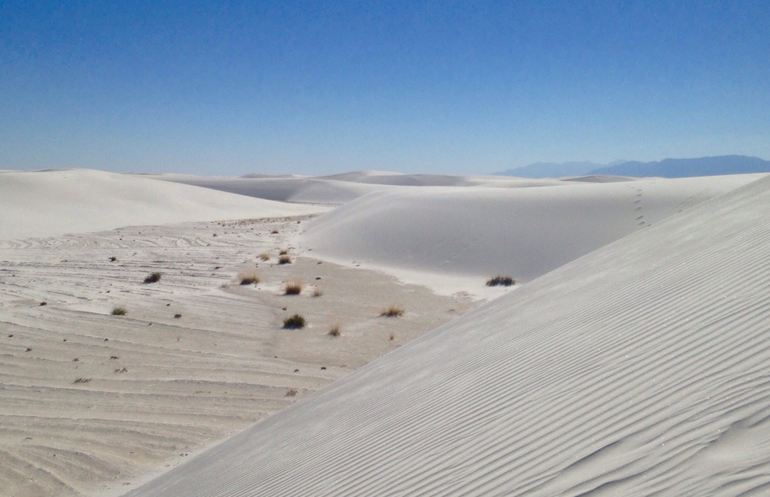
Hiking White Sands
The best way to experience the landscape of White Sands National Monument is to hike through the area. There are five established trails to explore, varying in length, scenery, and difficulty levels.
Plenty of information is available at the Visitor Center before you embark on your hike. Each trail is marked with distinct colored posts and symbols, so familiarize yourself with this information at the Visitor Center before commencing your trek. For serious hikers, the Alkali Flat Trail is a problematic five-mile-long trail.
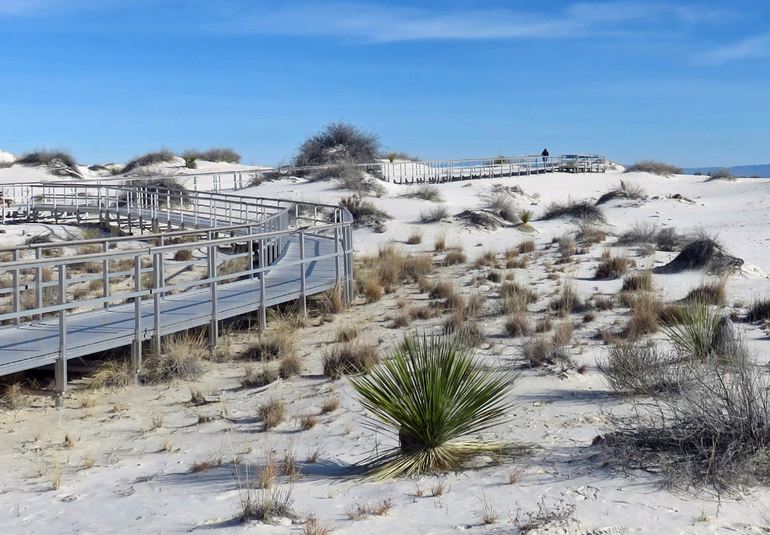
Interdune Boardwalk
For visitors needing assistance, try the Interdune Boardwalk, as it’s accessible for people with wheelchairs or strollers. For an easy trail, hike the Playa Trail, which is a little over half a mile with lots of outdoor exhibits along the way. The Dune Life Nature Trail is a mile-long, self-guided loop with steep dunes and loose sand. Look out for animals along this trail.
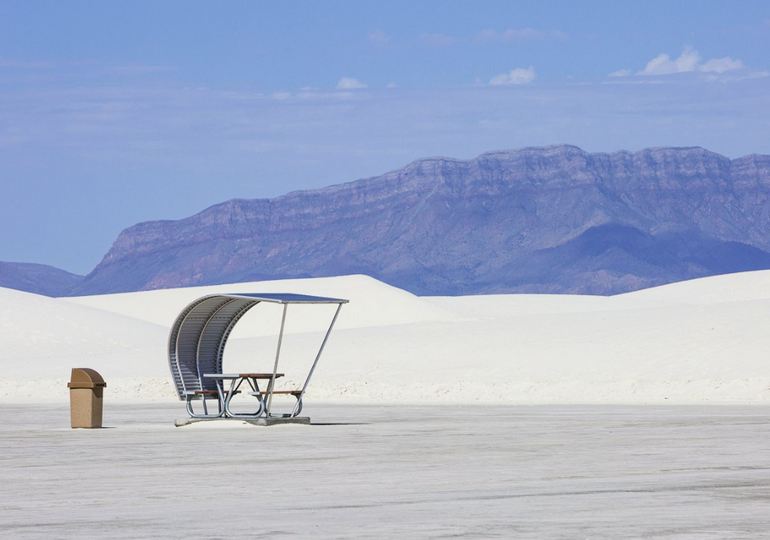
Sledding Down the Dunes
Try sledding down the dunes for a fun experience at the White Sands National Monument. It’s a popular activity here, and the powdery white gypsum makes it ideal for a great sledding experience. Permitted in the loop portions of the Dunes Drive, you can buy a plastic snow saucer from the gift shop and experience this fun activity.
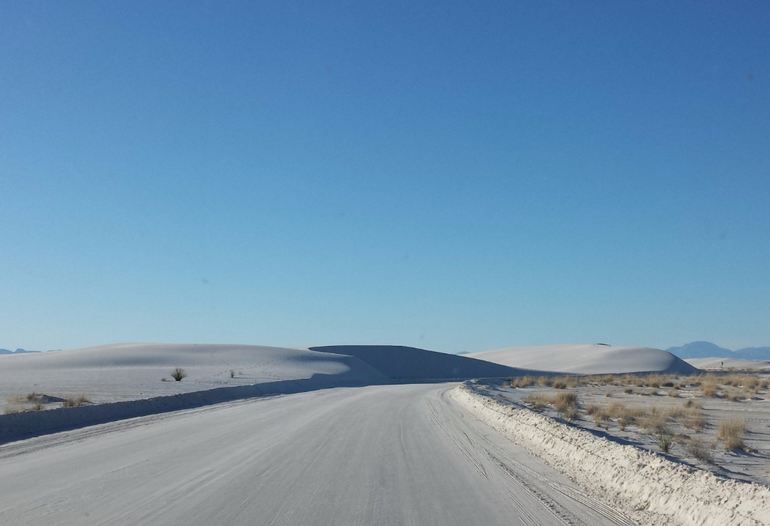
White Sands Dunes Drive
If you want to experience the mighty white dunes from the comfort of your vehicle, try the Dunes Drive, a sixteen-mile round trip scenic drive from the Visitor Center to the heart of the gypsum dune field. Set aside time to jump out of your vehicle to take pictures and explore the dunes.
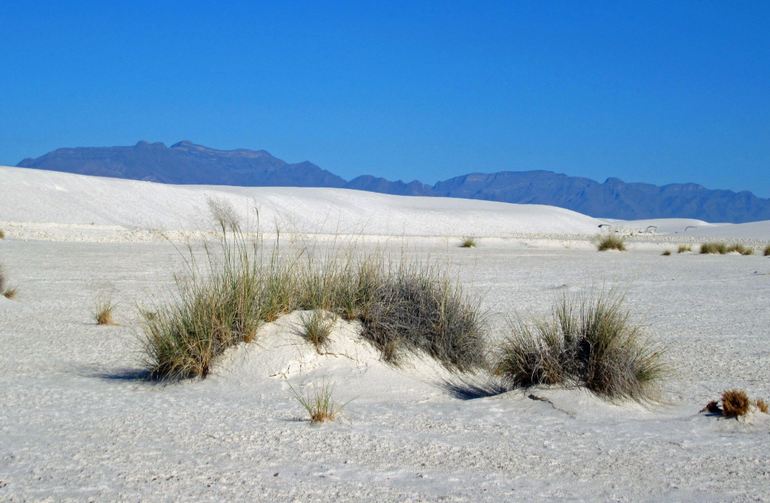
Backcountry Camping Experience
One of the best ways to enjoy the monument is through backcountry camping. Camp out amid the glistening white dunes for an unmatched experience. There are about ten primitive backcountry campsites available for which you must get a permit at the Visitor Center. Be prepared to hike for at least 1 mile to your campsites.
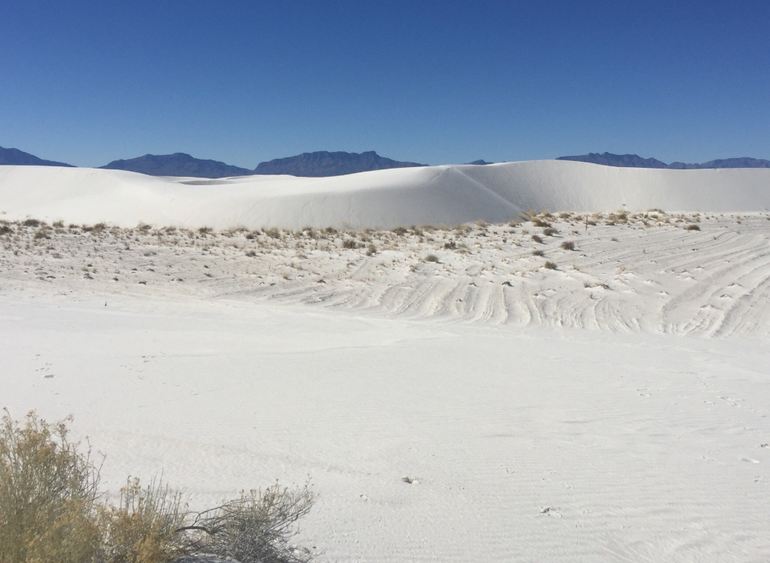
White Sands Ranger Program
For a more in-depth experience, it’s a good idea to sign up for one of the many Ranger Programs on offer. It’s the perfect way to learn more about the monument and its diversity. You could opt for a Sunset Stroll, a one-hour ranger-guided walk across the dunes where you’ll learn about the area’s geology, plants, and animals.
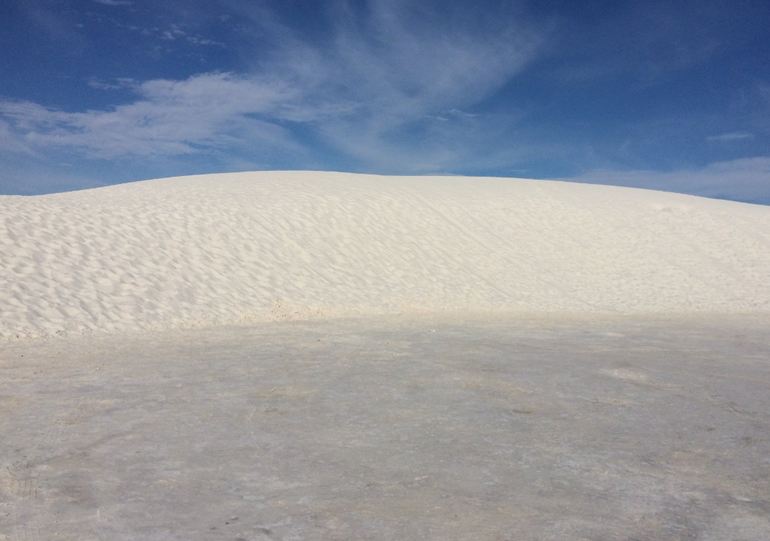
Full Moon hikes
The Full Moon hikes are also a unique experience and are offered from May to October. Time your visit with a Full Moon Night to experience a range of fun activities at the park, including live music, ranger programs, and activities.
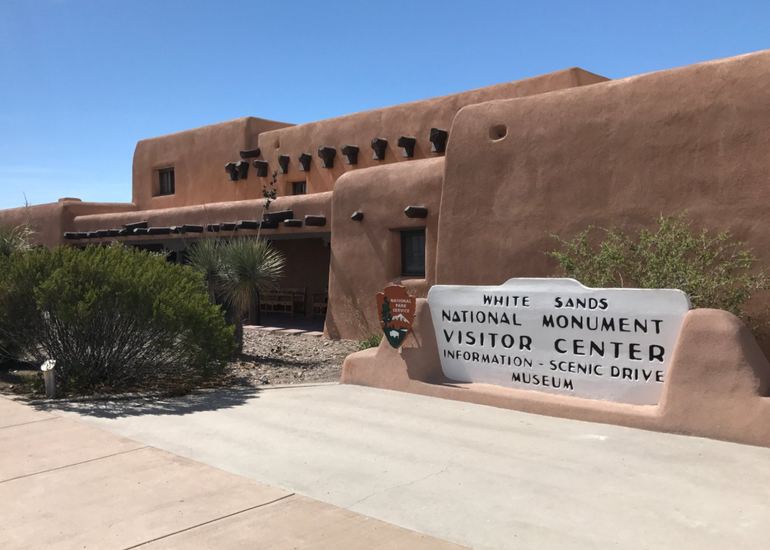
Getting There
The visitor center and Dunes Drive are located off Highway US-70 between Alamogordo and Las Cruces. The monument is about a one-hour drive from Las Cruces, NM, or 1.5 hours from El Paso, TX. Visit White Sands National Monument website for more information.
Leave a Reply